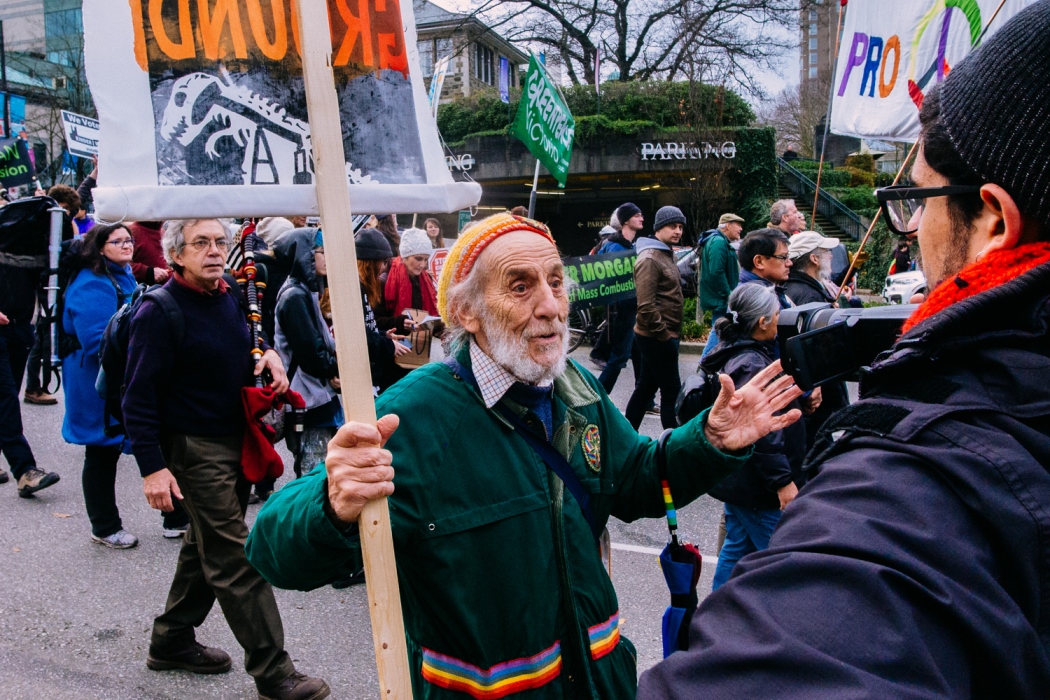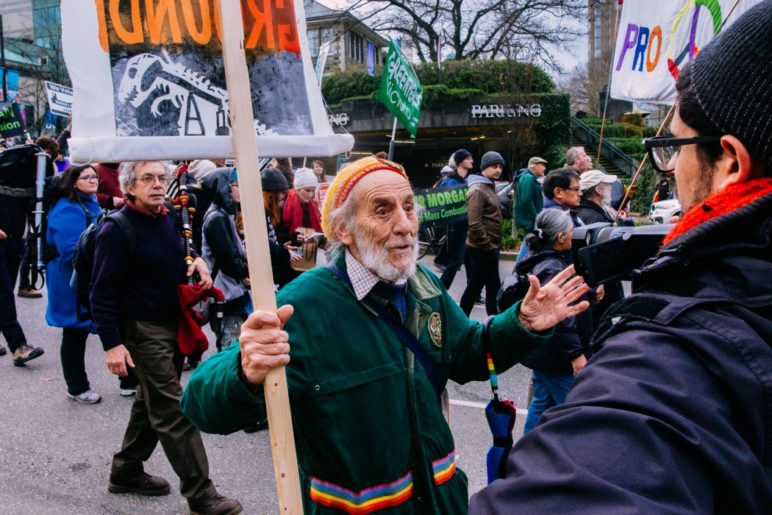A legal defense with historical connections to civil disobedience reached two climate-related milestones over the past year, with one unfolding right here in Washington earlier this spring.
The “necessity defense” has long been recognized as allowing unlawful acts that are “necessary” to avoid or minimize greater harm. One often-cited historical example is of a ship captain forced to utilize an embargoed port to avoid an oncoming storm. The defense has also been frequently invoked by protesters who take direct action to oppose a particular practice or policy, such as the production of nuclear weapons or government support for an oppressive foreign government.
In mid-March of last year, I wrote an article to explain the necessity defense, pointing out that despite numerous attempts, a climate protestor had never successfully used it in the United States.
Some two weeks later, that was no longer true. A judge in Massachusetts found 13 protesters not guilty based on the necessity defense after they were arrested for physically blocking the construction of a pipeline that would carry fracked gas through a Boston neighborhood.
And this year, in April, Division I of the Washington State Court of Appeals reversed the conviction of pipeline activist Kenneth Ward, concluding that he had a constitutional right to present a necessity defense in his trial for burglary and criminal sabotage. Ward broke into a Kinder Morgan facility near Anacortes in 2016 to shut off a pipeline delivering tar sands oil from Canada to the US. Ward’s action was part of a coordinated effort across four states by a group known as the Valve Turners.
The previous Sightline post observed that a judge potentially confronts two decisions when a defendant raises a necessity defense:
- Step 1: whether a defendant is allowed to present evidence as part of the trial to demonstrate each of the elements needed to establish the necessity defense; and
- Step 2: whether that evidence meets the threshold for allowing the jury to consider its applicability.
The court stated that its ruling was based on Step 1 only: the trial court judge in 2017 prevented Ward from presenting any evidence concerning necessity, including expert testimony by Sightline’s own Eric de Place and author/climate activist Bill McKibben. At the same time, the decision provides hints as to the court’s view of Step 2. The opinion notes that whether Ward’s beliefs as to the necessity of his actions were “reasonable” and whether alternative means of protest were available are questions “for the jury.”
The decision is also notable because it is published, meaning that lower courts in Western Washington are required to follow its logic. It could assist climate activists in presenting a full-throated defense, as well as possibly influence whether prosecutors will bring charges in similar cases at all. The prosecutor in Ward’s case can still bring the same charges against him, but any new trial would be markedly different, with Ward able to present a jury with evidence of the depth of the current climate crisis and his motivation for acting.
In 2016, a group of climate protesters known as the Delta Five was allowed to present evidence supporting a necessity defense while facing charges for their blockade of a train carrying crude oil from a railyard in Everett, Washington. Although that judge ultimately did not allow the jury to apply the defense at Step 2, simply presenting the evidence was clearly effective. The trial generated publicity in the US and abroad, and despite voting to convict on one charge of trespassing, some of the jurors openly sympathized with the defendants at its conclusion.
Civil disobedience to disrupt fossil fuel infrastructure will no doubt continue as the urgency of our climate crisis comes into sharper focus. The risk of jail time remains very real, as the necessity defense requires overcoming a number of legal and factual hurdles.
The legal obstacles have become slightly less formidable in parts of Washington, but its success is still far from guaranteed. That uncertainty only highlights the courage and commitment of the protesters who have decided that they must nevertheless act.
Michael Mayer practiced environmental law in the Northwest for close to a decade and now teaches climate change law at Seattle University School of Law.











Norse
When you’re done achieving nothing with petty trespass and property damage, there might be a seat at the adult table of policy change. There are those of us who make small strides and move the needle this way or that, but I don’t see any ‘Eco-Ninjas’ with much to say for their efforts, other than anonymous bragging rights on online forums.
Phillip James
I fall into the policy and political sphere of climate action, so I understand where you’re coming from Norse. But, I disagree with your disparagement of those going the direct action route. I applaud their work and have deep respect for it. And, they can provide real benefits such as making shareholders nervous and slowing projects down (giving policy wonks and lawyers more time to act).
There’s not a single strategy, we need a multi-pronged approach. Think of it this way.. look at a forest. There are lots of big trees. But there are also a ton of other plants, fungi, microorganisms, and animals that the big trees depend on. And, they, in turn, depend on the shading and microclimate created by the large trees. It’s a symbiotic relationship.